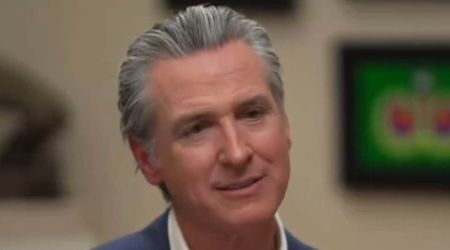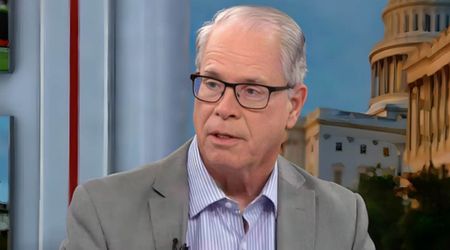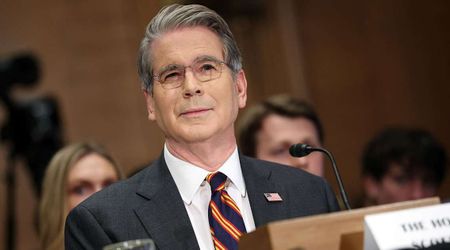Child psychologists weigh in on Trump's 'immature' mindset behind 'Taylor Swift is no longer hot' dig

WASHINGTON, DC: President Donald Trump is under fire after making a disparaging comment about pop icon Taylor Swift on his social media platform, Truth Social, prompting mental health professionals to weigh in on what they call an "emotionally immature" and "sexist" attack.
In a post shared on Friday, May 16, Trump took a jab at Swift, writing, “Has anyone noticed that, since I said ‘I HATE TAYLOR SWIFT,’ she’s no longer ‘HOT?’”
Mental health experts compare Donald Trump’s outburst to ‘schoolyard’ insults
The comment sparked widespread criticism on social media and was slammed for its underlying misogyny. Rather than addressing global or domestic issues, Donald Trump seemed to target Taylor Swift’s appearance, which experts say reveals deeper problems, reports Huffpost.
“The tone and content of the post resemble childlike behavior — impulsive, unprovoked and lacking basic decorum,” said Samantha Rhoads, a family therapist in Pennsylvania. “Yet, even that comparison may be unfair to children.”

Rhoads added, “Trump’s post evokes the problematic ‘boys will be boys’ narrative, historically used to excuse inappropriate conduct at the expense of girls’ dignity and boundaries.”
Therapists also highlighted the sexist undertones of Trump’s comment, pointing out that he didn’t critique Swift’s music or political views, but her physical appearance.
“I think this is also very much rooted in sexism, patriarchy. It’s rooted in objectifying women, young women,” said Manahil Riaz, a psychotherapist in Texas. “He’s mocking her. He’s belittling her. He’s not talking about the way she sings — it could be different or better or what I prefer — he’s straight-up just picking something superficial. Just because I say you’re no longer attractive or popular, that means that’s the truth, and that’s not true.”
“Let me put that out there that I don’t think he thought about it a few times before he clicked post,” Riaz remarked, pointing out that “The president of the United States also should be held accountable to check in with himself before he posts something, because he’s the president. He’s in power, people will listen to him. So it would be good if he could think about what he’s saying. And I don’t think that that’s what was happening.”

“It reinforces the message that women’s value lies in being ‘hot,’ and that men get to decide when that status is revoked. That’s toxic, not funny,” said Haley Sheehan, another Pennsylvania-based therapist. “Trump’s comment about Taylor Swift reflects a striking lack of emotional maturity,” Sheehan added.
“It sounds more like something you’d hear on a schoolyard than from a public, world leader. It’s giving, 'well, I didn’t want to be invited to your birthday party anyway!’” she concluded.
Experts call out Donald Trump's behavior as ‘protective puffing’

According to mental health experts, President Donald Trump's frequent habit of demeaning women, especially the powerful ones, isn’t just offensive; it's textbook psychology.
Therapist Haley Sheehan describes the behavior as “protective puffing”, a term used to explain how individuals cope with insecurity and rejection.
“In therapy, we call this protective puffing — when someone feels insecure, rejected or powerless, they try to regain control by insulting or devaluing the other person,” Sheehan explained. “Kids do it when they feel left out. Adults are supposed to outgrow it.”
Sheehan’s remarks come as Trump continues to face criticism for targeting women in the public eye, often focusing on their looks as a way to undermine their credibility or status. “Instead of processing the emotion, Trump lashes out in the most juvenile way possible: by reducing a successful, powerful woman to her appearance, and then declaring she’s only attractive if he approves,” Sheehan noted.
The president has a history of making disparaging comments about women’s appearances, particularly when challenged or criticized.
Donald Trump’s mindset mirrors childlike egocentrism, say mental health experts

Psychologists are raising concerns about what they describe as a pattern of egocentric thinking in President Donald Trump — a mindset they say is typical in early childhood but becomes disruptive if carried into adulthood.
Mental health expert Manahil Riaz explained that children naturally believe the world revolves around them, and their thoughts reflect a belief that everyone sees the world exactly as they do. “From the ages of around 2 to 7, kids have trouble seeing perspectives of others,” she said. “So, if you play peek-a-boo, that child believes that they disappeared because their eyes are closed.”
“And so the next step is teenagehood, there’s a social aspect to it — whatever I think, everybody thinks, whenever I walk into the room, that’s when everybody’s reality begins,” Riaz explained.
Riaz explained that during adolescence, it’s common to feel like you're constantly under a spotlight as if there’s an invisible crowd watching your every move and passing judgment. “Whatever thought I have, I might want to say it out loud, because I have it in my mind, and everyone’s in my mind,” Riaz added.










